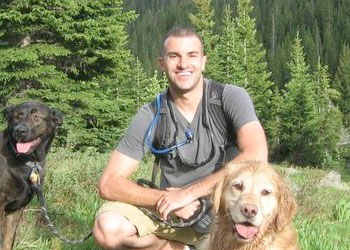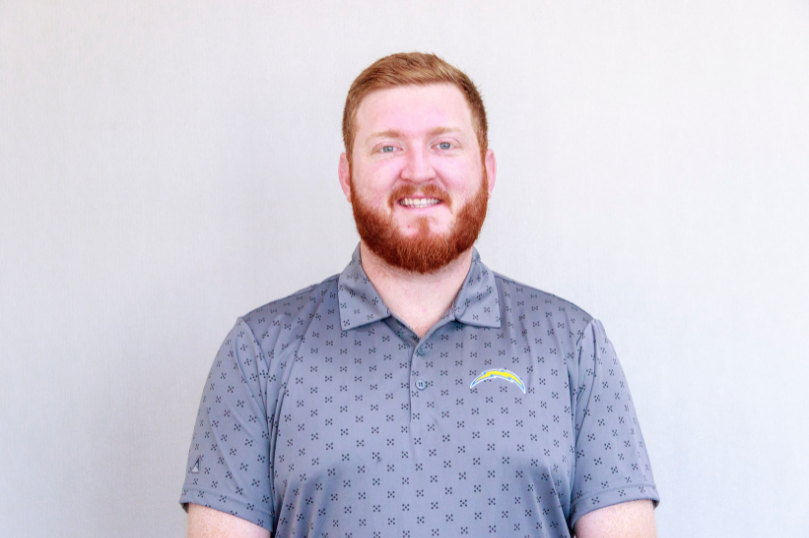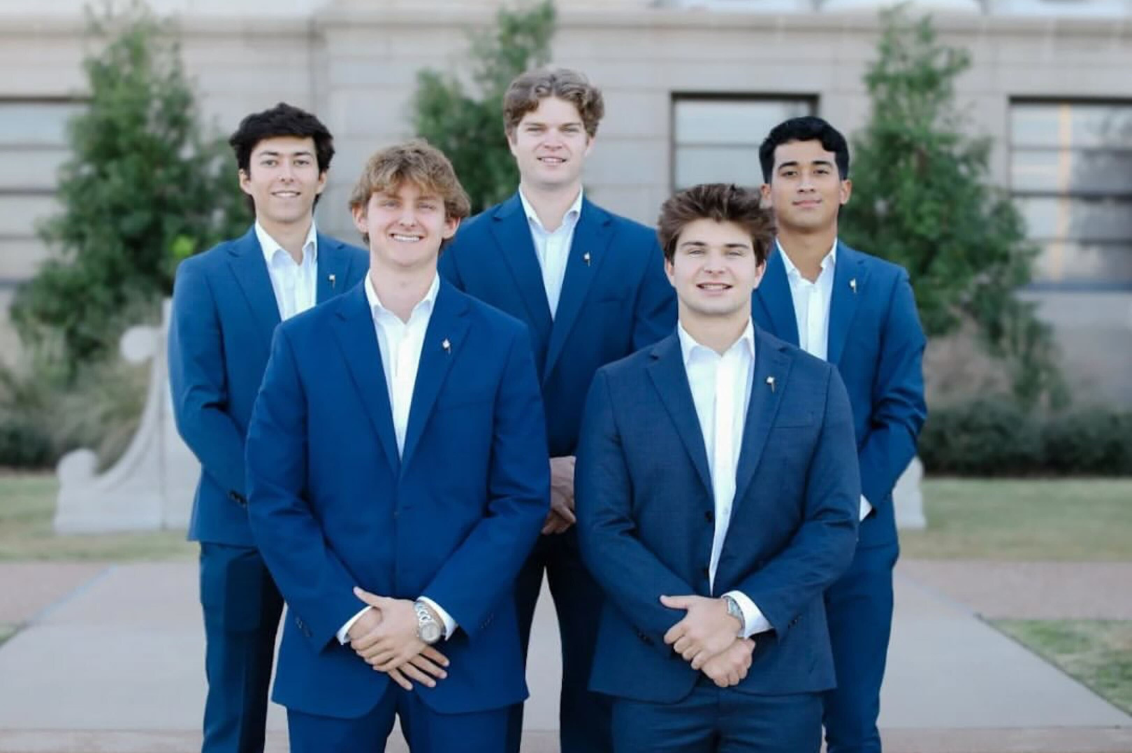By Keith Lopez
At Phi Delta Theta leadership conferences and in conversations with undergraduates, the following question has been posed many times – “What do you want your Phi Delt legacy to be?” Not legacy in terms of a relative who will become a future brother, but instead in terms of the impact you want to leave behind for your chapter and our organization. While for many of you, that may be a difficult question to answer at this point in your life. As a Chapter Advisor and a higher education professional, I always think that my legacy as a Phi Delt may actually be a Phi Delt undergraduate student, one that I may get to work with who does something that positively impacts our world. How many of you have ever thought about the Phi Delt legacy you hope to leave and how that relates to who you bring into your organization next?
Well, it’s now that time of the year. For the past few weeks, college campuses everywhere have been busy welcoming students back to campus; energy is brewing, excitement for a new year is everywhere, college football is beginning and fraternity men everywhere have jumped back into regular operations after a summer break. Thousands of men are walking around campus, not knowing that they could be a part of one of the greatest organizations to exist for men…. If only a connection could be made with a Phi Delt on their campus….
While many chapters recruit year-round, the fall generally provides an extra focus on the recruitment process and the growth of your chapter. While this excitement is apparent, for many chapter leaders, it can also be an incredibly frustrating time. Chapter leaders may already be hearing the following excuses: “Recruitment is hard”, or “It’s not my responsibility to recruit, that’s why we elect a Recruitment Chairman”, or “I’ve already put my time into this chapter!” We’ve all heard these before from the same members, and we know who they are. Picture them, name them… again, we know who they are…
Upon being asked to write this post, my mind was spinning about all of the different things I could write about that are recruitment related. It wasn’t until yesterday, while having a conversation with one of the fraternity men that I advise, that I posed the question, “What do you want your Phi Delt legacy to be and what contributions have you made to this organization?” This caused me to think about the many conversations I’ve had over the past four years regarding the recruitment process and the subsequent impact it has on an organization. The creation of your Phi Delt Legacy may have begun when someone recruited you. It can now be amplified when you recruit someone else who has the potential to create an immeasurable and positive impact on your chapter and our organization. So if the journey of leaving your mark as a Phi Delt begins with the recruitment process, how do you combat myths or misunderstandings of what recruitment should be? Below are some thoughts on re-examining how your chapter recruits and redefining the recruitment process to help you leave your Phi Delt Legacy:
Recruitment is what we do as fraternity men.
Just like any other organization, in order to survive, we need to be continuously recruiting. Many say, recruitment is the “lifeblood” of the organization, and it truly is. Without it, we don’t stay alive. If members of your chapter do not want to grow their own organization, why did they join? How are they acting on what they pledged to do in the Phikeia oath? And more importantly, how were they recruited? This could teach you a lesson in who not to bring into your chapter in the future.
Recruitment is not a week or 2 week process. Recruitment is every day.
The most successful chapters make recruitment a part of the culture. It’s what you do every day. It’s not a two week process along with the other fraternities. It’s not over just because your week or two weeks of doing large events has ended and you have matched the same number you did the previous year. Recruitment is a continual process of making positive and meaningful connections with other college men and introducing them to your organization to determine whether or not they would make a good addition to your chapter.
Recruitment is about making a connection… an authentic one.
I was walking around the Student Involvement Expo on the campus I work at last week, watching hundreds of student and community organizations promote themselves to potential members. There was a clear difference between the chapters that were making connections and those that were not. Those that were not were passing out flyers for their organizations and allowed students to grab them and walk by. Those that were making connections had meaningful conversations with students lasting more than three minutes before even handing out a flyer to the interested party. To make authentic connections, you have to ask questions, not only the typical name, where from, major questions, but more than that. Think about how you can truly get to know that person. How can you learn about why they ended up there at that table, in that space, and at that time, having a conversation with you? How did that happen? Why is the conversation happening? Find commonalities. Learn about their passions and interests and go from there. It’s simply the art of meeting people and making them your friends, friends who you may want to make your brothers someday. This is more than just handing someone a flyer…
Recruitment is about the little experiences others have with us.
When you think about creating meaningful connections, remember that every interaction one of your members has with another individual is a recruitment opportunity. Scary isn’t it? Maybe not as much as it seems. Let me break it down for you. Think about it this way. Every time you interact with another individual regardless of gender, you could be making a connection that could lead to another connection that could ultimately lead to a brother. A student-leader I worked with e-mailed me today. He noticed that I currently serve as the Chapter Advisor for the Phi Delt chapter on campus and wondered how he could meet the members of the chapter. He had recentlybecome interested in fraternity life, and I was able to connect him to the chapter based on our past experiences. Thinking more broadly, how are others experiencing you on a daily basis, and how does that relate to creating potential connections? Just something to reflect on.
Recruitment is not hard, but it does take effort and organization.
Recruitment is not a one man job. It takes the entire chapter. While recruitment is what we do, occurs every day, and is about making connections, it does take an investment by multiple individuals to make it work. It also takes clear organization. Who is keeping track of potential new members and how? What are your standards for potential new members? If you do coordinate some larger events as part of recruitment, who assists with the planning and coordination? What does individual outreach to potential new members look like? To be able to recruit, you’ve also got to have these logistical pieces figured out.
While the above may not tell you exactly how to recruit, my goal was to provide a framework for reflecting on your current recruitment process or structure. In order to make adjustments, begin to think a bit differently about the impact of your recruitment strategies.
With that, start now, and begin the process of creating your own Phi Delt legacy through the recruitment of others. You never know, your Phi Delt legacy could be the guy sitting next to you in your 10am class tomorrow morning and that connection is just waiting to be made…
Keith currently serves as the Coordinator for First & Second Year Programs in Orientation & Transition Programs at Colorado State University where he coordinates the welcome week/fall orientation program, a mentoring program and a conference for first-year students as well as second year student experiences. He also teaches in the first year of the President’s Leadership Program and the Greeks Against Sexual Assault Training Seminar. Additionally, Keith has been working on creating a small business in northern Colorado focused on providing leadership and team development consulting services. He currently serves as the Chapter Advisory Board Chairman for the Colorado Gamma chapter of Phi Delta Theta.





